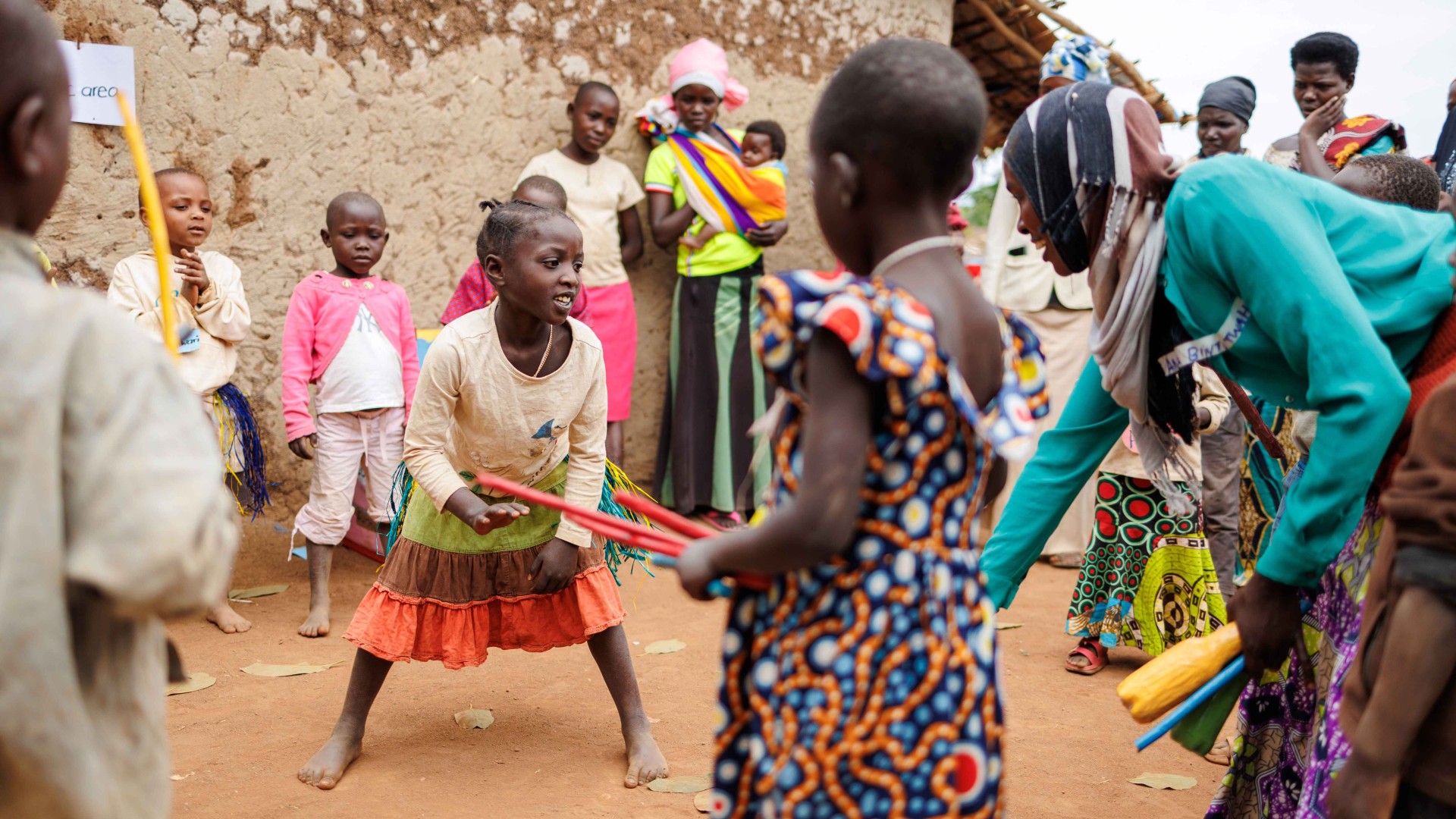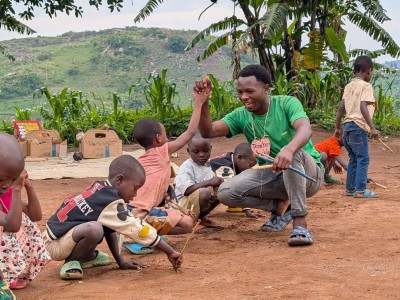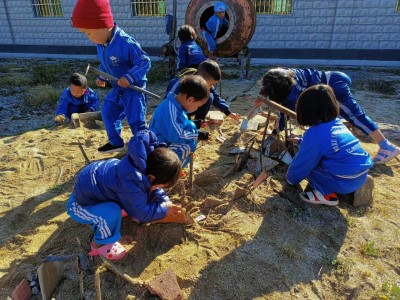Through our early years programmes in Uganda and Myanmar, communities are supported to offer their young children quality early learning opportunities, through a child friendly and play focused curriculum in a safe and nurturing environment.
Early Childhood Development (ECD) supports children’s development from birth to the age of five. It includes programmes and services that support nurturing care including health, nutrition, play, learning and protection.
By the time a child reaches five years old, 90% of their brain has already developed, meaning the early years of a child’s life is the most important of their lives. These early years offer a critical window of opportunity to shape the development of a child’s brain in a positive way.
Children who benefit from ECD perform better at every subsequent level of education and they are twice as likely to be on track in early literacy and numeracy skills than children missing out on ECD.
Investing in ECD is not only beneficial for children, it is also cost-effective. The impacts of inadequate care, nutrition and stimulation during a child’s early months and years can last a lifetime.
Effective ECD can result in higher employment and income levels, better health and lower levels of welfare dependence and crime rates than those who don’t access ECD.
“The early moments of life offer an unparalleled opportunity to build the brains of the children who will build the future… For children from disadvantaged communities, the price of this failure is lost potential”.
UNICEF - Early Moments Matter
For children who have experienced trauma, living in conflict and crisis situations, Early Childhood Development (ECD) is even more vital. High quality ECD helps to mitigate the harmful impacts of crisis by creating a protective layer around a child. Loving, caring and child friendly environments enable children living in difficult situations to not only heal and recover, but thrive.
Globally, over one-sixth of forcibly displaced are children under the age of five and there is a distinct lack of early years provision both in national and humanitarian programming. This is leaving a high proportion of the youngest refugee children cut off from learning at the most vital time of their development.
“The effects of neglect in these formative years can be cumulative and lasting. Young children who experience extreme stress are at greater risk of developing cognitive, behavioural or emotional difficulties.”
John Littleton, Asia Regional Manager, Children on the Edge
A lack of intervention for children at this young age is likely to result in negative consequences for the global community. There is evidence that young people from refugee communities face psychological distress, low performance in school, and issues with social and cultural integration.
We believe that the main aim of early years education is not limited to academic progress, but to instil a lifelong love of learning. Early learning should develop a child's’ imagination and creativity, helping them become resilient, determined, confident and able to solve complex problems.
A wealth of evidence has proven that play, particularly in early years, leads to a range of positive outcomes, including improved fine and gross motor skills, social skills, moral and emotional development, and advanced language and literacy skills. Play-based activities are most effective to optimise early learning.
Play is even more important for children in volatile environments who, in the absence of play and nurturing relationships, are vulnerable to toxic stress. This can cause irrevocable damage leading to difficulties in later childhood and adulthood.
In the Kyaka II refugee settlement , Uganda, we support communities to provide early learning opportunities through small ‘cluster’ groups, in local study areas close to where the children live. Our Cluster Learning Approach ensures community led education for approximately 5,000 refugee children. Play-based, child-led learning is prioritised and every small group is a riot of colour and creativity, with piles of locally sourced and home crafted materials created and used by teachers.






